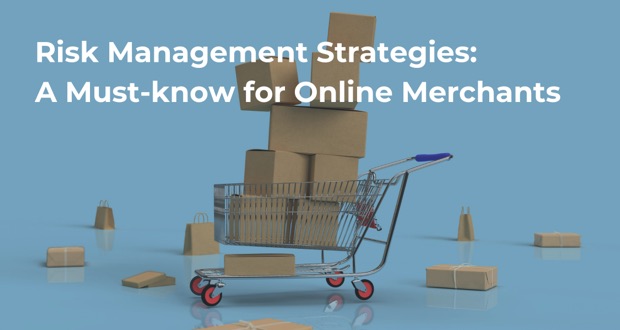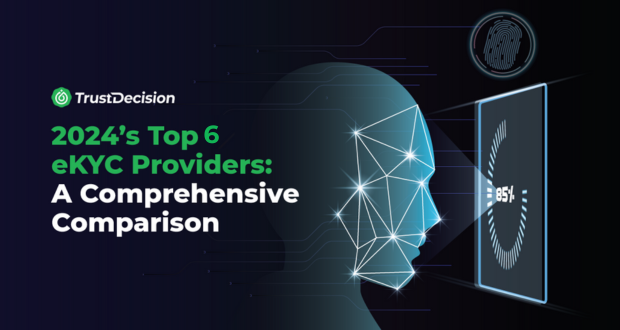The Importance of Risk Management
Risk management is essential for maintaining financial stability in e-commerce businesses, which rely heavily on revenue generated from online transactions. Any financial loss due to fraud, chargebacks, or operational disruptions can significantly impact your bottom line. Moreover, customer trust is the currency of the digital realm. A single security breach or data leak can erode customer confidence, leading to lost sales and a damaged reputation. Additionally, online merchants must navigate a complex web of regulations related to data privacy, consumer protection, and payment processing. Non-compliance can result in hefty fines and legal consequences, making it imperative to stay abreast of legal requirements.
Challenges Faced by E-commerce Businesses
E-commerce businesses face several challenges that necessitate robust risk management strategies. Fraud prevention is a significant concern, as sophisticated fraudsters constantly adapt their tactics to exploit vulnerabilities. Traditional eKYC (Know Your Customer) solutions may fall short in detecting these evolving threats, underscoring the need for advanced fraud detection mechanisms. Another challenge is ensuring data accuracy and verification speed. Verifying customer identities during onboarding is essential, but slow verification processes and inaccuracies can frustrate customers and hinder growth. Lastly, as online commerce transcends borders, language barriers become a challenge. Supporting diverse languages and document types is crucial for reaching a global audience and ensuring smooth operations.
Understanding Risk Factors
Fraud Detection Mechanisms
Online merchants encounter a wide range of fraudulent activities, from stolen credit cards to account takeovers. Traditional eKYC solutions often struggle to keep up with these evolving threats. To enhance fraud detection, consider implementing advanced behavioral analytics, which involves monitoring user behavior patterns to detect anomalies. Unusual login times, frequent password resets, or sudden changes in transaction volume can signal potential fraud. By employing machine learning models that adapt over time, businesses can more effectively identify suspicious activities. Another critical strategy is the use of multi-factor authentication (MFA). Requiring users to authenticate using multiple factors—such as a password, SMS code, or biometrics—during login or high-risk transactions adds an extra layer of security, making it harder for fraudsters to gain unauthorized access. Additionally, real-time transaction monitoring is essential. Setting up automated alerts for unusual transactions, such as large purchases, multiple failed attempts, or cross-border payments, allows for prompt investigation and blocking of suspicious activities.
Data Accuracy and Verification Speed
Ensuring data accuracy and verification speed is another crucial aspect of risk management for online merchants. Automated document verification tools, powered by AI, can significantly enhance the accuracy of data extraction from IDs, passports, and other documents. This automation speeds up customer onboarding while maintaining high accuracy. Optimized OCR (Optical Character Recognition) technology is also vital, as it plays a crucial role in extracting information from scanned documents. Regularly updating OCR models to handle various fonts, languages, and document formats ensures that the verification process remains efficient and accurate. Moreover, a streamlined user experience is essential. Customers expect a seamless onboarding process, so it's important to balance accuracy with speed. Optimizing verification steps to minimize friction while maintaining data accuracy can enhance customer satisfaction and reduce drop-off rates.
Language Support and Global Reach
As online commerce transcends borders, language support and global reach become increasingly important. Localized verification is essential for supporting multiple languages during document verification. Ensuring that non-English documents are accurately processed can be achieved by collaborating with language experts to improve accuracy and reduce false positives. Additionally, global document coverage is crucial for online merchants operating across borders. Verifying a wide range of document types—such as national IDs, driver's licenses, and utility bills—from various countries requires keeping the verification system up-to-date with the latest document templates. This comprehensive approach ensures that merchants can effectively manage risks while expanding their global reach.
In summary, understanding and addressing key risk factors such as fraud detection, data accuracy, and language support are essential for online merchants. By implementing advanced behavioral analytics, multi-factor authentication, real-time transaction monitoring, automated document verification, optimized OCR, and localized verification, businesses can enhance their risk management strategies. These measures not only protect financial stability and customer trust but also ensure compliance with legal and regulatory requirements, ultimately contributing to the sustained success of online merchants in the digital landscape.
TrustDecision’s KYC++ Solution
1. Overview
KYC++ stands as the ultimate identity verification suite, combining cutting-edge technologies to safeguard your business. This comprehensive solution offers robust identity verification, advanced fraud protection, and an efficient user experience, making it an indispensable tool for online merchants.
KYC++ excels in identity verification by seamlessly verifying government-issued IDs, passports, and other documents. It leverages biometrics authentication, including facial recognition and fingerprint scans, to ensure robust user authentication. Additionally, device checks are employed to assess the device used during verification, preventing account takeovers and enhancing security. In terms of fraud protection, KYC++ features an anti-spoofing solution that detects altered or manipulated images, including document forgery, deepfakes, and AI-generated content. This capability safeguards against digital hijacking during the KYC process. The solution achieves over 95% data accuracy in Optical Character Recognition (OCR), ensuring reliable and precise data extraction.
Efficiency and user experience are paramount in the KYC++ solution. The system delivers lightning-fast verification, scanning and returning results within 1 second to ensure a seamless onboarding experience. Existing document data can be optimized for accuracy in just 5 working days, enhancing user satisfaction with swift and reliable results.
2. Key Features
- Robust Anti-Spoofing Solution:
- Protect against fraudulent attempts by identifying altered images and sophisticated spoofing techniques.
- Strengthen security during the KYC process to prevent unauthorized access.
- Efficient Verification Process:
- Speed matters. KYC++ delivers lightning-fast results, minimizing customer wait times.
- Accuracy is paramount—optimize existing document data swiftly.
- Global Reach and Compliance Assurance:
- Cover 12,500 document types across 247 countries.
- Support 138 languages for accurate verification.
- Maintain privacy policies aligned with GDPR and CCPA regulations.
3. Implementation
Integrating TrustDecision's KYC++ API into your business operations is straightforward and hassle-free. The solution can be seamlessly embedded into web platforms, mobile apps, or SDKs, allowing for flexible and versatile implementation. By integrating KYC++, online merchants can enjoy peace of mind knowing that compliance and security standards are at the core of the solution. This integration not only enhances the security and efficiency of the KYC process but also ensures that businesses remain compliant with legal and regulatory requirements, ultimately contributing to a safer and more trustworthy digital environment.
Additional Risk Considerations
1. Supply Chain Risks in E-commerce
Supply chain risks are a significant concern for online merchants, as they can directly impact business operations and customer satisfaction. One of the primary vulnerabilities related to suppliers is dependency risk. Relying heavily on a single supplier can be risky because if that supplier faces disruptions, such as bankruptcy or production delays, your business could suffer. Additionally, quality control is a critical issue. Poor-quality products from suppliers can harm your brand reputation, leading to returns and customer dissatisfaction. Logistics challenges also pose substantial risks. Shipping delays caused by unforeseen events like natural disasters, strikes, or customs delays can disrupt shipping schedules and affect delivery times. Moreover, inventory management issues, such as overstocking or stockouts due to inaccurate demand forecasting, can impact revenue and operational efficiency.
To mitigate these risks, several strategies can be employed. Diversifying suppliers is a crucial step to reduce dependency on a single source. Working with multiple suppliers ensures that your business can continue operating smoothly even if one supplier faces issues. Conducting regular supplier audits is another effective strategy. Assessing supplier financial health, quality control processes, and ethical practices helps ensure that your suppliers meet your standards and can reliably deliver quality products. Agile inventory management, supported by data-driven tools, can optimize inventory levels and enable quick responses to demand fluctuations, reducing the risk of overstocking or stockouts.
2. Innovations in Online Retail
The rapid pace of technological advancements in online retail presents both opportunities and risks. Emerging technologies like AI (Artificial Intelligence) and blockchain offer significant benefits but also introduce new challenges. AI-driven personalization, chatbots, and recommendation engines can enhance user experience and drive sales. However, these technologies require robust data security measures to protect sensitive customer information. Blockchain technology promises greater supply chain transparency and security, but its adoption introduces risks such as smart contract vulnerabilities that need to be carefully managed.
To manage the risks associated with these innovations, pilot testing is essential. Testing new technologies in controlled environments allows businesses to identify potential issues and make necessary adjustments before full-scale implementation. Regular security assessments are also crucial. Evaluating the security posture of innovative solutions helps ensure that they do not introduce vulnerabilities into your systems and that customer data remains protected.
3. Customer Data Protection
Protecting customer data is paramount for maintaining trust and complying with legal requirements. Privacy concerns, such as data breaches, can lead to severe consequences, including legal penalties and reputational damage. Ensuring compliance with regulations like the General Data Protection Regulation (GDPR) is essential for protecting customer privacy and avoiding fines.
Implementing best practices for data protection can significantly reduce the risk of data breaches. Encryption is a fundamental measure, ensuring that sensitive data is encrypted during transmission and storage to prevent unauthorized access. Access controls are also vital, limiting access to customer data to authorized personnel only. Additionally, having a well-defined incident response plan is crucial. Preparing for data breaches with a comprehensive response plan enables your business to act swiftly and effectively, minimizing the impact of any security incidents.
Conclusion
In the dynamic landscape of e-commerce, risk management is not a mere formality—it’s a strategic imperative. Here’s why:
- Safeguarding Your Business: Effective risk management shields your business from financial losses, fraud, and reputational damage.
- Customer Trust: Trust is the bedrock of successful online commerce. Implementing robust risk strategies ensures that customers feel secure when transacting with you.
- Compliance and Innovation: Balancing compliance with emerging technologies is essential. Stay ahead by adopting solutions like KYC++.
TrustDecision’s KYC++:
- Identity Verification: KYC++ integrates document checks, biometrics, and device assessments.
- Fraud Protection: Shield against sophisticated spoofing techniques.
- Efficiency: Lightning-fast verification without compromising accuracy.
- Global Reach: Cover diverse languages and document types.
Remember, risk management isn’t a one-time task—it’s an ongoing commitment. As an online merchant, prioritize security, adapt to innovations, and build trust with your customers.









.jpeg)




